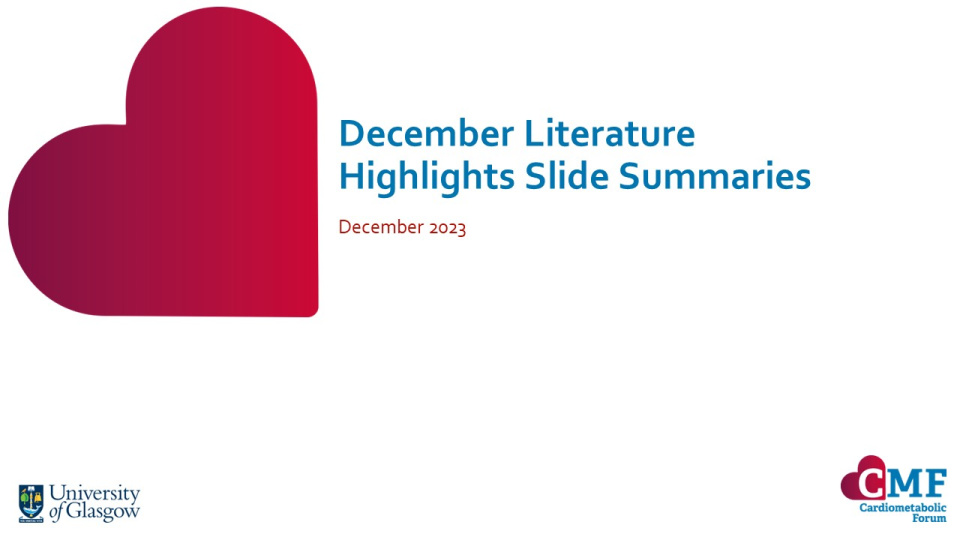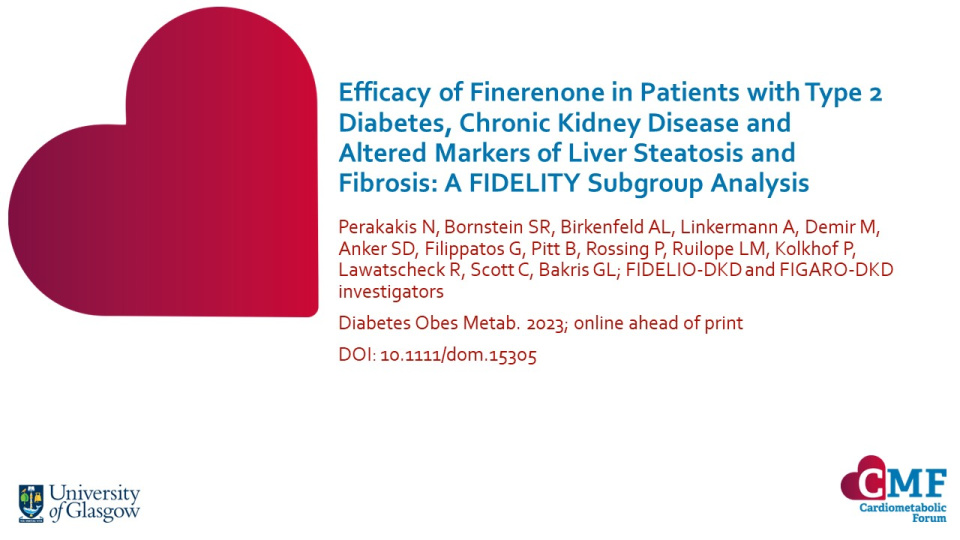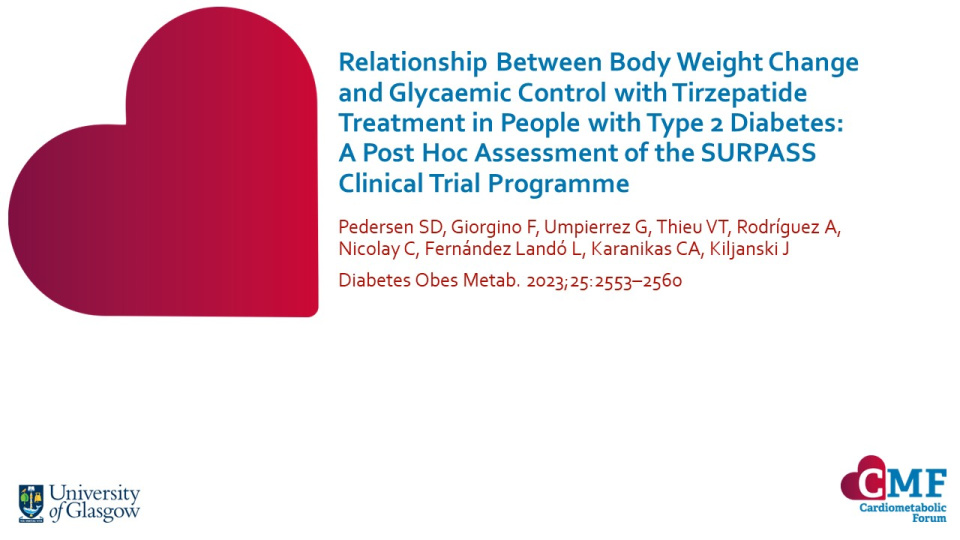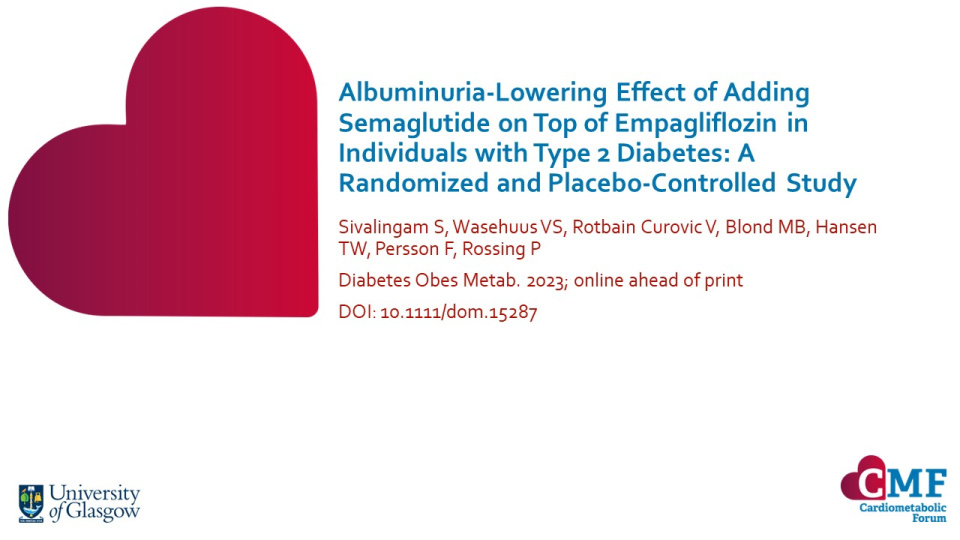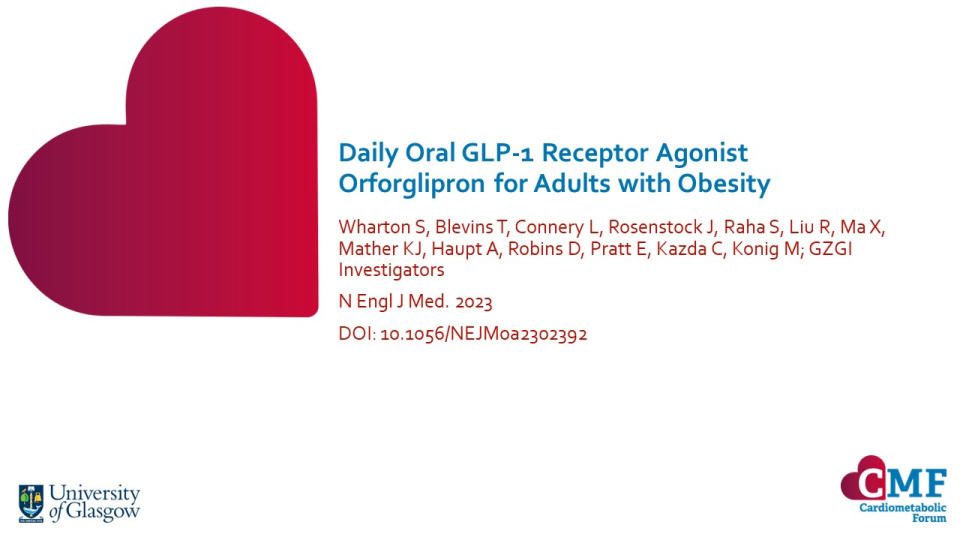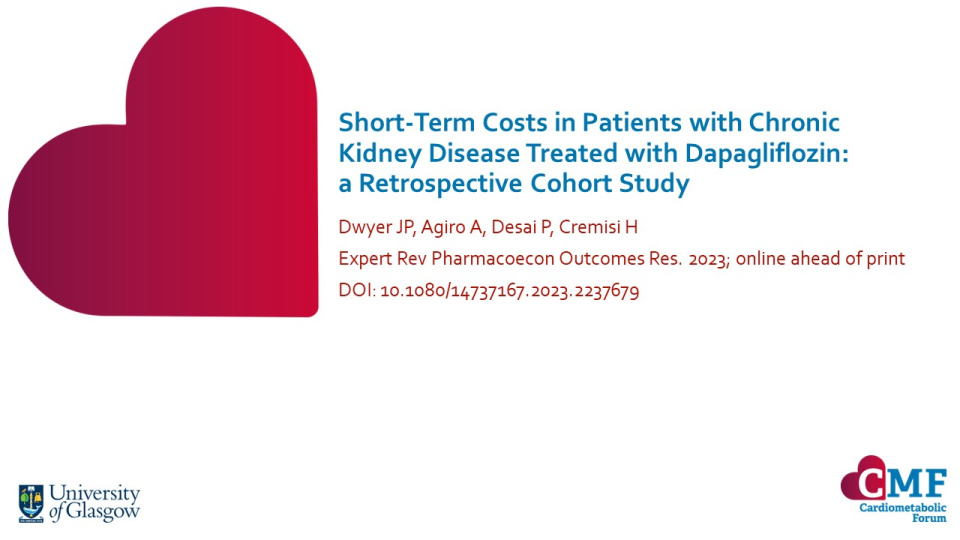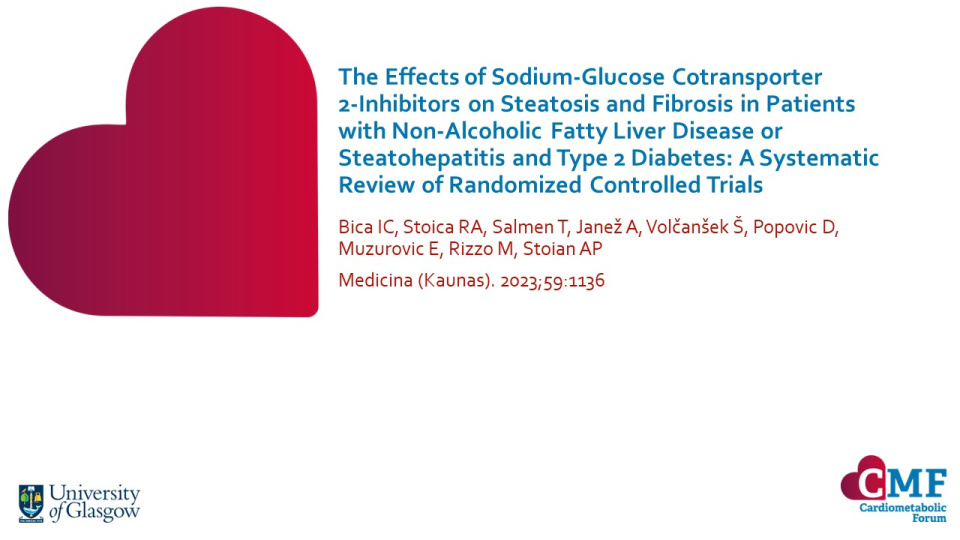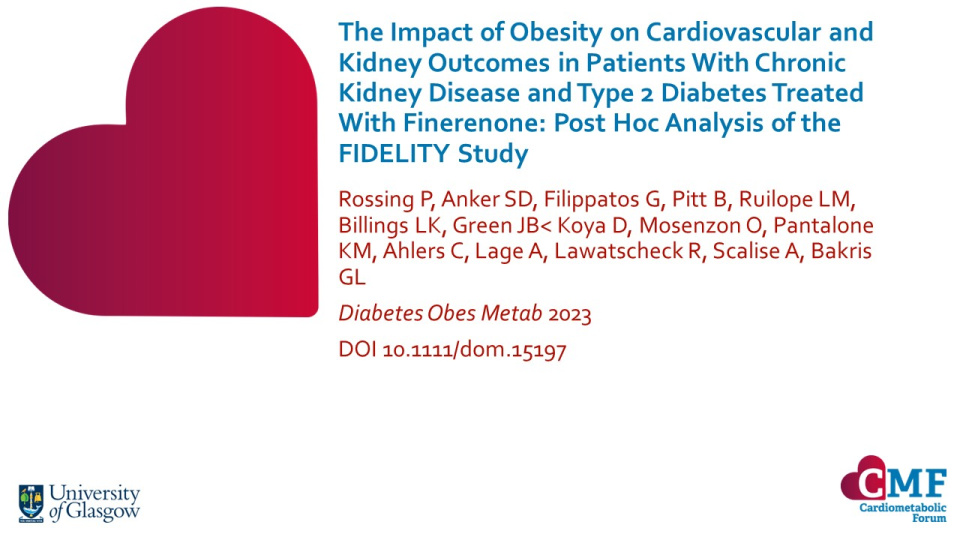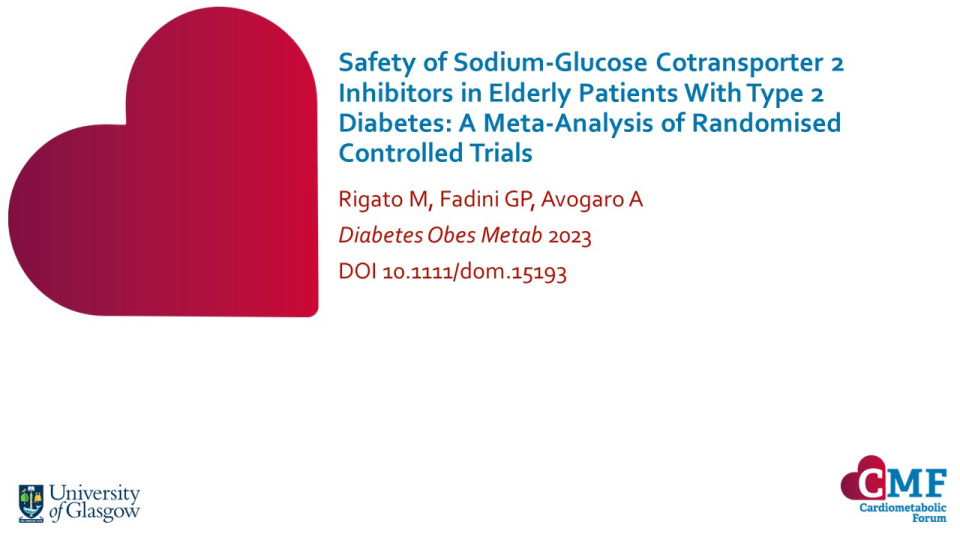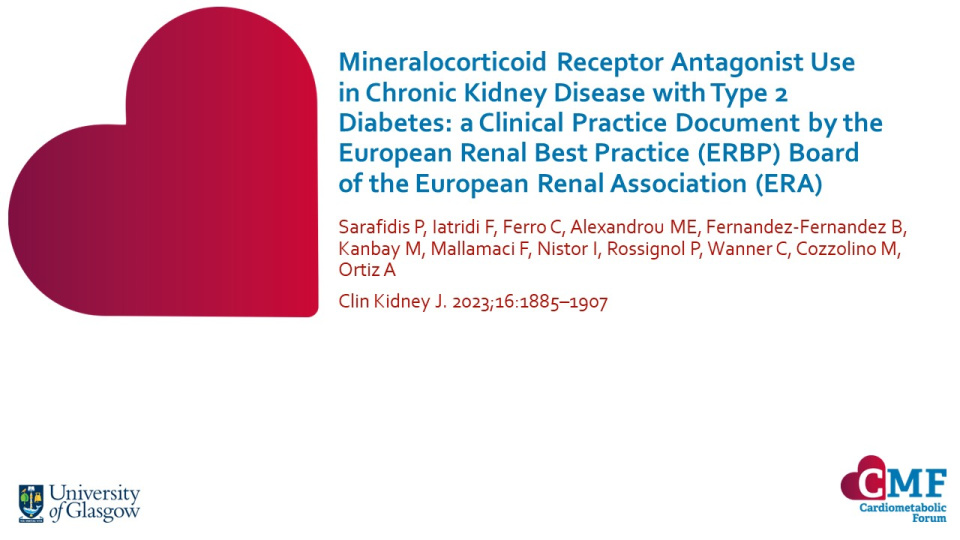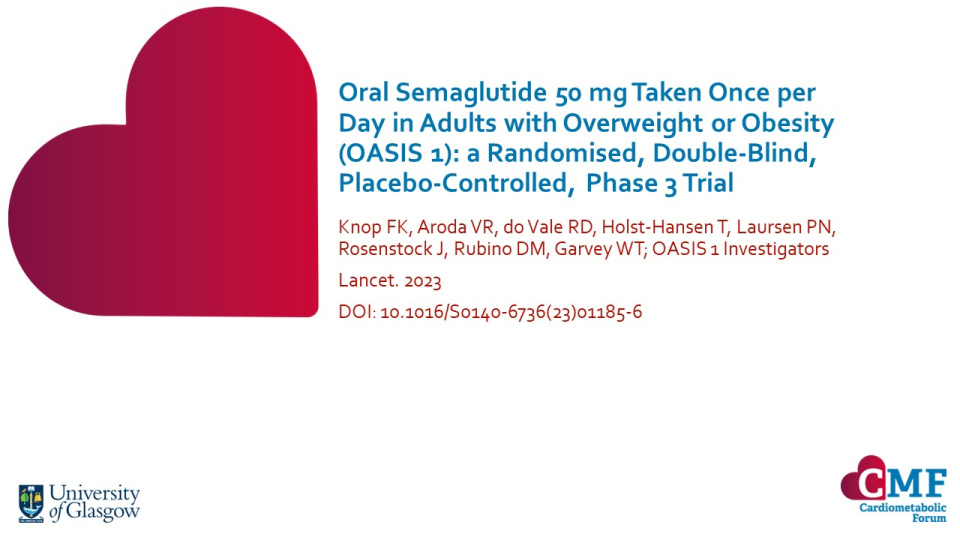Publications
Stay up to date with our literature reviews which are curated by experts to feature the most important publications released each month. Explore our publications for access to concise summary slides for your own use.
Efficacy of Finerenone in Patients with Type 2 Diabetes, Chronic Kidney Disease and Altered Markers of Liver Steatosis and Fibrosis: A FIDELITY Subgroup Analysis
Diabetes Obes Metab. 2023; online ahead of print DOI: 10.1111/dom.15305
This post hoc subgroup analysis from FIDELITY investigated the effect of finerenone on liver function, cardiovascular and kidney composite outcomes in patients with CKD and T2D, stratified by their risk of liver steatosis, inflammation and fibrosis.
Keywords:
Relationship Between Body Weight Change and Glycaemic Control with Tirzepatide Treatment in People with Type 2 Diabetes: A Post Hoc Assessment of the SURPASS Clinical Trial Programme
Diabetes Obes Metab. 2023;25:2553–2560
Given that improvements in glycaemic control may be linked to both weight-independent and weight-dependent mechanisms, it is of interest to understand how changes in glycaemia and weight seen with tirzepatide are related. This post hoc analysis assessed the relationship between HbA1c and body weight reductions with tirzepatide treatment (5, 10 or 15 mg) across the SURPASS clinical trial programme.
Keywords:
Albuminuria-Lowering Effect of Adding Semaglutide on Top of Empagliflozin in Individuals with Type 2 Diabetes: A Randomized and Placebo-Controlled Study
Diabetes Obes Metab. 2023; online ahead of print DOI: 10.1111/dom.15287
The proposed different mechanisms of SGLT2i and GLP-1RAs indicate that combination therapy may have additive or synergistic effects on the kidneys. This placebo-controlled, double-blind, parallel-group study investigated the effect on albuminuria of adding semaglutide to ongoing treatment with empagliflozin compared with empagliflozin alone in 60 individuals with T2D and albuminuria.
Keywords:
Daily Oral GLP-1 Receptor Agonist Orforglipron for Adults with Obesity
N Engl J Med. 2023; DOI: 10.1056/NEJMoa2302392
Orforglipron is a once-daily oral nonpeptide GLP-1RA in development for weight management and the treatment of T2D. This phase 2 double-blind trial evaluated the efficacy and safety of orforglipron in adults with obesity, or with overweight plus at least one weight-related coexisting condition, and without T2D. In total, 272 participants were randomised to orforglipron (12, 24, 36 or 45 mg) or placebo once daily for 36 weeks, with a primary endpoint of change from baseline in body weight at week 26.
Keywords:
Short-Term Costs in Patients with Chronic Kidney Disease Treated with Dapagliflozin: a Retrospective Cohort Study
Expert Rev Pharmacoecon Outcomes Res. 2023; online ahead of print DOI: 10.1080/14737167.2023.2237679
Analyses have found that dapagliflozin is cost-effective in the long term in patients with non-diabetic CKD and in patients with CKD with or without T2D. The slowing of eGFR decline and the early reduction in HF hospitalisation seen with dapagliflozin suggest that there is potential for short-term cost benefits in patients with CKD; however, there is a lack of real-world evidence. This retrospective observational cohort study described the impact of dapagliflozin on short-term medical costs in propensity matched patients with stage 3 CKD.
Keywords:
The Effects of Sodium-Glucose Cotransporter 2-Inhibitors on Steatosis and Fibrosis in Patients with Non-Alcoholic Fatty Liver Disease or Steatohepatitis and Type 2 Diabetes: A Systematic Review of Randomized Controlled Trials
Medicina (Kaunas). 2023;59:1136 DOI: 10.3390/medicina59061136
T2D and NAFLD/NASH share common causal pathways. As a class of glucose-lowering agents with well-established cardiovascular benefits, SGLT2i have been studied for effects on steatosis and fibrosis in patients with NAFLD or NASH. A systematic review was conducted to examine the efficacy of SGLT2i on NAFLD/NASH in patients who also had T2D.
Keywords:
The Impact of Obesity on Cardiovascular and Kidney Outcomes in Patients with Chronic Kidney Disease and Type 2 Diabetes Treated with Finerenone: Post hoc analysis of the FIDELITY Study
Diabetes Obes Metab. 2023 doi Epub ahead of print : 10.1111/dom.15197
Patients with obesity may benefit more from treatment with mineralocorticoid receptor antagonists given their higher levels of circulating aldosterone and therefore potentially higher levels of MRs in visceral fat. The aim of this analysis was to assess the effect of finerenone on the risk of cardiovascular and kidney outcomes in patients with chronic kidney disease and type 2 diabetes, with and without obesity.
Keywords:
Safety of Sodium-Glucose Cotransporter 2 Inhibitors in Elderly Patients with Type 2 Diabetes: A Meta-Analysis of Randomised Controlled Trials
Diabetes Obes Metab 2023 DOI 10.1111/dom.15193
SGLT2is are effective in preventing adverse outcomes of heart failure and chronic kidney disease, which are highly prevalent in the elderly. While SGLT2is are generally well tolerated, elderly patients may be more susceptible to developing AEs reported with this class of drug, such as infections, fracture, and AKI. Clinical experience with SGLT2is in the elderly and very elderly is limited.
Mineralocorticoid Receptor Antagonist Use in Chronic Kidney Disease with Type 2 Diabetes: A Clinical Practice Document by the European Renal Best Practice (ERBP) Board of the European Renal Association (ERA)
Clin Kidney J. 2023;16:1885–1907
Patients with CKD and T2D are at high risk of both developing kidney failure and of CV events. With RAS blockers, residual risk of CKD progression remains high and no significant reduction in CV events and mortality has been seen in major studies in patients with CKD and T2D. Steroidal MRAs have been shown to reduce albuminuria in individuals on RAS monotherapy, but widespread clinical use is limited by the risk of hyperkalaemia and the absence of trials with hard renal outcomes. In recent years, non-steroidal MRAs have received increasing interest due to their better pharmacological profile, particularly finerenone, which effectively reduced CKD progression and CV outcomes in participants with T2D in Phase 3 trials.
Keywords:
Oral Semaglutide 50 mg Taken Once per Day in Adults with Overweight or Obesity (OASIS 1): a Randomised, Double-Blind, Placebo-Controlled, Phase 3 Trial
Lancet. 2023. DOI: 10.1016/S0140-6736(23)01185-6
Oral semaglutide 7 mg and 14 mg once-daily are approved for the treatment of T2D and improve glycaemic control with accompanying body weight reductions. A higher dose of once-daily oral semaglutide 50 mg is currently being investigated for the treatment of obesity in people with overweight or obesity, and for glycaemic control in people with T2D. The OASIS 1 trial assessed once-daily oral semaglutide 50 mg in adults with overweight or obesity, without T2D.

